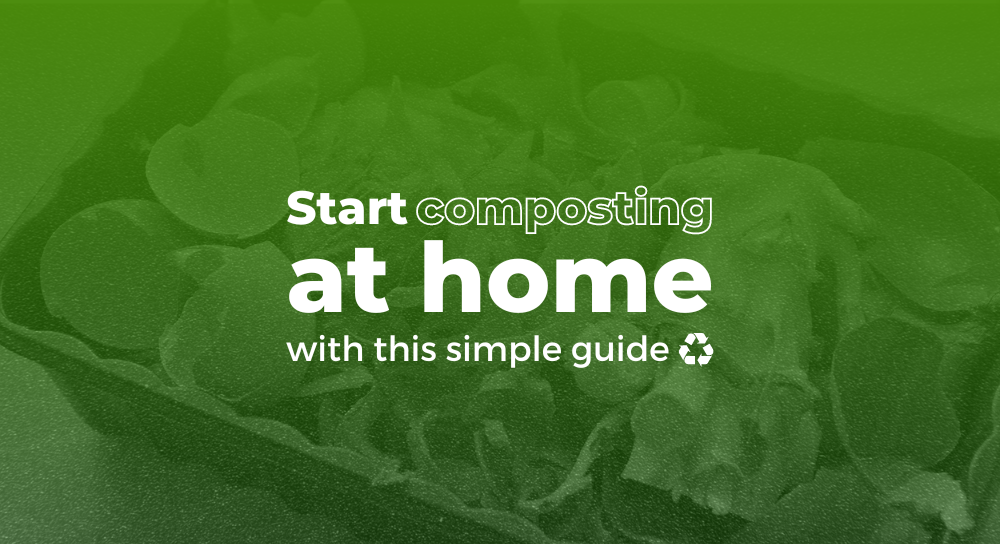Do you like the idea of composting but haven’t tried it because it seems too difficult? Well, this guide is here to make composting a simple and easy process to understand and put into practice.
Composting breaks down organic matter, which is anything that was once living. This means that when you compost, you are recycling vital nutrients so you can use them to improve the quality of your soil and its produce.
Composting is simple to master. Knowing how to set up a home composting system will elevate your home gardening skills while providing a healthy boost to your garden! Here are some helpful tips for getting started with composting and turning your kitchen and garden waste into what some gardeners refer to as “black gold.”
There are many all-in-one kits available on the market for small plots and urban gardens but you can save yourself some money by taking the DIY route. With a process this simple, why not?
There are a few things you will need:
- Two large plastic boxes with a tight sealing lid (this is important to avoid any unwanted smells or odours). The boxes should ideally be 80L or more, and should be “stackable” or one able to nest inside the other.
- A tool to pierce holes into one of the plastic containers (we suggest a drill to make the process as easy as possible)
- A base layer of soil
- An absorbent material (i.e shredded newspaper or sawdust)
Step 1 – Set up
Pierce (or drill) a row of holes through each side of one plastic container, just below the top. The exact size of the hole is unimportant, but for a composting system suitable for an apartment, each hole should be roughly 1 to 3 inches apart. These perforations will allow airflow, which is necessary for the composting process.
Next, pierce holes into the bottom of the same plastic bin you just drilled airflow holes in. The number of holes will vary depending on the size of the container, but try for an even distribution across the bin. The liquid formed during the composting process will be able to drain into the second plastic bin through these holes. The liquid, sometimes known as compost tea, can be discarded or used to nourish your favourite plants.
Step 2 – Creating the base layer
Insert the perforated plastic container into the second plastic bin. Fill the top bin with a few inches of your favourite soil, then add a layer of dry, absorbent material, such as shredded junk mail or sawdust and sprinkle about half a cup of water over top.
Step 3 – Start Composting
Your composter is now operational! Place organic waste in your composter’s top bin. Cover it with newspaper or sawdust to absorb excess moisture and avoid mold and odours. Always close your composter after adding material, waste or even our very own compostable containers.
Extra Tip: Compost accelerators
With home composting growing more popular and homes becoming smaller, folks who want to compost without lingering odour have discovered compost accelerators to be incredibly useful. Compost accelerators are usually a natural mixture of minerals and microorganisms that activate the contents of your compost bin and speed up the process, resulting in finished compost in less time.
Step 4 – Keep it clean
The composter will take at least a few months (or more) to fully break down waste without accelerants, so it’s important to keep the bin hygienic. Periodically (every 1-2 weeks minimum) empty the second bin of liquid and clean it to assist in preventing mold growth or odours.
Step 5 – Using your compost
Compost is an excellent soil additive for your home garden or for potted plants. According to research, it can improve drainage, increase beneficial microorganisms, and attract earthworms. Once your compost is finished, you can either add it immediately to your garden or store it in a container and add it to your plants as needed. Furthermore, the liquid created by the composting process is nutrient-rich. Many people use this “compost tea” to fertilise houseplants or gardens.
Further reading:

